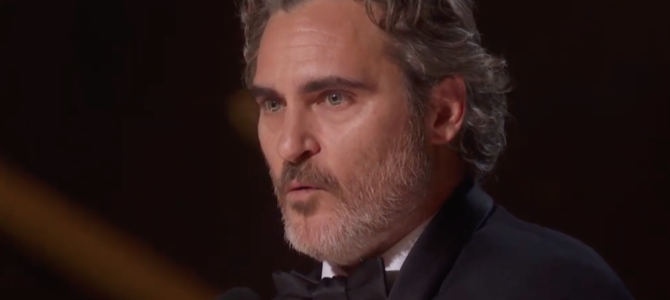Honored at Sunday’s Oscars for his stunning performance in “Joker,” Joaquin Phoenix’s acceptance speech for Best Actor could be best described as bizarre environmentalism. Phoenix started out by condemning the mentality of entitlement that drives humans to artificially inseminate cows and use their milk in cereal. (The speech ended on a touching note, with Phoenix paying tribute to his late brother.)
But it got much better. Phoenix used the second half of his speech to mount an eloquent argument against cancel culture. Steve Martin and Chris Rock briefly addressed the issue earlier in the broadcast, but Phoenix really dug in.
“Now, I have been a scoundrel in my life. I’ve been selfish. I’ve been cruel at times, hard to work with and ungrateful, but so many of you in this room have given me a second chance,” he said. “And I think that’s when we’re at our best, when we support each other, not when we cancel each other out for past mistakes, but when we help each other to grow, when we educate each other, when we guide each other toward redemption.”
It reminded me of Andrew Yang’s reaction last year to ousted “Saturday Night Live” cast member Shane Gillis, who was booted from the show almost immediately after being hired over bits that mocked Asian Americans. Describing the jokes as “terrible and insensitive,” Yang also tweeted, “For the record, I do not think he should lose his job. We would benefit from being more forgiving rather than punitive. We are all human.”
The concept of forgiveness is at an obvious disadvantage in today’s media culture, where platforms like Twitter incentivize conflict, and publishers lean on clickbait. Even so, Phoenix is right to contrast cancelations with growth. Redemption, as he put it, is a much healthier, and more constructive goal than reflexive alienation.









